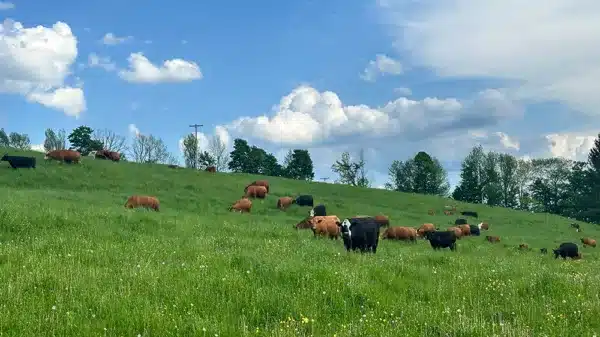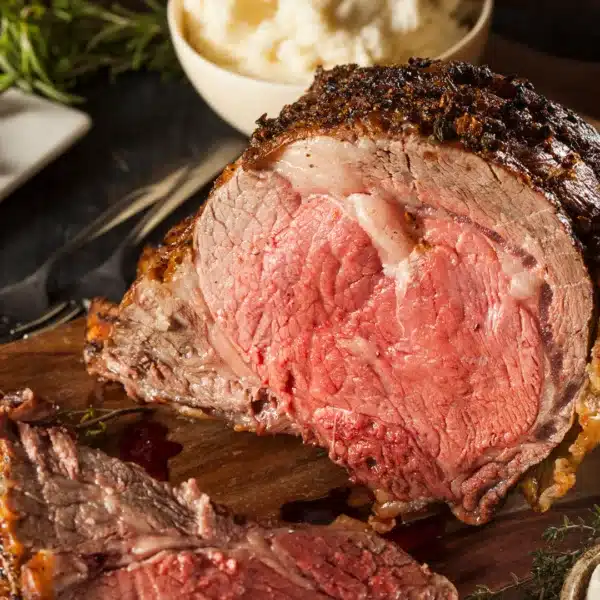3 Reasons Why Factory Farms Are Failing the Planet

Factory farms. They’re everywhere, hiding behind phrases like “All Natural” or “Farm Fresh” on grocery store labels. But peel back the curtain, and what you’ll find is an industrialized system that prioritizes profit over sustainability, animal welfare, and even your health.
This isn’t just a farming issue—it’s an environmental crisis. And whether you’re a food lover, a concerned parent, or just someone who wants to leave the world better than they found it, understanding the real cost of factory farming is the first step to making a difference.
Here’s how factory farms are failing the planet in three major ways:
1. They’re Wrecking Our Climate
Factory farming is one of the leading causes of greenhouse gas emissions worldwide. In fact, the industrial livestock sector alone accounts for 14.5% of global emissions, according to the Food and Agriculture Organization (FAO). This rivals emissions from the entire transportation sector.
Here’s how:
- Deforestation: Millions of acres of rainforest are destroyed every year to grow soy and corn for industrial livestock feed. Forests that could be absorbing CO2 are instead wiped out for monoculture farming.
- Methane Emissions: Industrial livestock operations, especially concentrated feedlots for cattle, are methane factories. Methane is 25 times more potent as a greenhouse gas than CO2.
- Nitrous Oxide from Manure: Factory farms produce an overwhelming amount of waste, stored in “manure lagoons.” These lagoons release nitrous oxide, a greenhouse gas that’s 300 times more potent than CO2.
2. They Destroy the Land and Water
Factory farms treat land and water like disposable resources, polluting and depleting them without consideration for long-term sustainability.
- Soil Degradation: Industrial monoculture farming to grow feed crops destroys soil health. Chemical fertilizers and pesticides strip the land of nutrients, leaving it barren and prone to erosion.
- Water Pollution: Those manure lagoons? They often leak, spilling into rivers, lakes, and groundwater. This creates dead zones in aquatic ecosystems, where oxygen levels drop so low that fish and other wildlife can’t survive.
- Water Waste: Factory farms consume an extraordinary amount of water. It takes 1,800 gallons of water to produce just one pound of beef on a factory farm, compared to significantly less in regenerative systems.
3. They Treat Animals Like Commodities, Not Living Beings
The ethical implications of factory farming can’t be ignored. Animals are crammed into confined spaces, pumped full of antibiotics to prevent disease outbreaks, and forced to grow unnaturally fast for profit margins.
- Confinement: Chickens, pigs, and cows often spend their entire lives in cages or feedlots with barely enough room to move. This isn’t just inhumane—it also contributes to stress and disease.
- Antibiotic Overuse: Factory farms use antibiotics not just to treat illness, but to promote growth and prevent disease in cramped, unsanitary conditions. The result? Rising antibiotic resistance, a global health crisis that puts humans at risk.
What You Can Do About It
You might be thinking, “This sounds overwhelming. What can I do as one person?” The truth is, your choices as a consumer carry more weight than you realize. Here’s how you can push back against the factory farming system:
1. Vote with Your Fork
Every time you choose meat that’s pasture-raised and ethically sourced, you’re rejecting factory farms and supporting a better way of farming. Look for companies like Walden Local that partner with small, regenerative farms committed to humane practices and sustainability.
Why it matters:
- Pasture-raised animals roam freely, eat diets they’re meant to eat, and contribute to healthy ecosystems.
- Regenerative farms sequester carbon in the soil, helping to combat climate change.
2. Ask Questions About Your Meat
Transparency is key. Where did it come from? How was it raised? Does the farmer use regenerative practices? If your grocer or butcher can’t answer these questions, it’s time to look elsewhere.
At Walden Local, we’re proud to say:
- No factory farms. Ever.
- No antibiotics or hormones.
- 100% pasture-raised meat from small, local farms.
3. Reduce Waste
40% of food in the U.S. is wasted, and much of it ends up in landfills, where it releases methane as it decomposes. By buying high-quality meat and valuing every cut, you’re making a commitment to reduce waste.
Try these tips:
- Plan meals in advance so you only buy what you’ll use.
- Store meat properly to extend its shelf life.
- Use every part of the animal (hello, bone broth!).
4. Support Local Farms
Big Agriculture thrives on disconnect. Factory farms hide behind supply chains so long and opaque, even the grocery store doesn’t know where the meat comes from. Supporting local farms builds transparency, strengthens communities, and ensures your food dollars go directly to the people doing the hard work.
Why Walden Local is Leading the Charge
At Walden Local, we believe there’s a better way to raise and source meat—one that honors the land, the animals, and you. By partnering with small, regenerative farms across New England and New York, we’re helping to rebuild a broken food system.
Our farms:
- Restore the land with rotational grazing and regenerative practices.
- Raise animals humanely, in alignment with their natural behaviors.
- Deliver superior-tasting meat, free of shortcuts like antibiotics, hormones, or factory farming practices.
The Bottom Line
Factory farms may dominate the system now, but the future belongs to farms and food systems that value quality, sustainability, and ethics. The more we choose better meat from better farms, the more we chip away at a system that’s failing the planet.
It’s time to rewrite the rules—for the land, the animals, and our families.
Ready to make a difference? Start with your next meal.
Related Posts

Our B Corp Recertification & Cultivating a Thriving Food System
This is about building something better—for the land, for farmers, for communities, and for the future.

Winter Pastures and Southern Wisdom
Change starts with the farmers. Those who wake up every day and choose to do things the right way, not the easy way.

Spring Holiday Prime Rib with Potatoes
Spring holidays are coming, and that means good food and company—hopefully with a side of laughter (and some bickering over who gets the last roast potato).